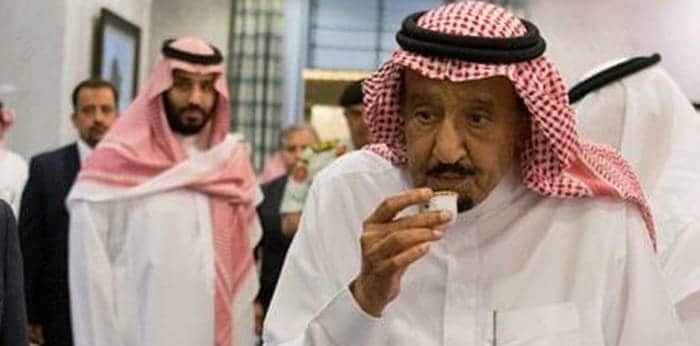At Etidal, which means moderation and is not just monitoring extremist messaging but also forging a counter-narrative of religious coexistence, the average age of the Saudi engineers, programmers and graphic designers is 26. With two thirds of the Saudi population under the age of 30, that should not be surprising. And it is Saudi youths who convey great energy and enthusiasm; they insist that they own the change and are committed to remaking their country.
The drive for change in Saudi Arabia is more credible because it is homegrown, not a response to outside pressure. It is being driven by an understanding that Saudi Arabia cannot sustain governance based on the lowest common denominator among all the factions of the royal family, the approval of the Wahhabi clerics, an economy dependent almost exclusively on oil for revenue and 80 percent of Saudi households dependent on the government.
MBS and his father, King Salman bin Abdul Aziz, understand this. Moreover, I suspect that the crown prince, who set up the MiSK Foundation for cultivating learning and a knowledge-based society before he came to power, read the mood of Saudi young people and saw a readiness for change. He saw, I believe, the potential that could be drawn upon even as he understood the danger of perpetuating the status quo. In this connection, during a visit to the Saudi Royal Court’s Center for Studies and Media Affairs, I was shown extensive polling on attitudes within the kingdom and how traditional views on the role of government, religious institutions and women are undergoing change. Saudi youths, not surprisingly, are far more open than the third of the population over 30.
When speaking to one Saudi senior official about his daughter who is 16, I was struck by the obvious pride he felt in saying, “she believes she can do anything now.” That is not Saudi Arabia yet, as women still require the approval of a male relative to travel abroad.
Still, if it was not for the turmoil and conflict that are consuming the region, the big story in the Middle East would be the transformation taking place in Saudi Arabia. The absence of a successful model of development produced the appeal of secular nationalists such as Gamal Abdel Nasser and Saddam Hussein on the one hand, and Islamists on the other — all claiming they had the solution for what plagued the region and its injustice and backwardness.
We in the United States have a tremendous stake in MBS’s success, and his upcoming three-week visit to America will offer an opportunity for help where we can while a chance to be honest with him. It may go against the administration’s grain, but allowing more Saudi students to come and stay for postgraduate internships clearly would have an impact in the kingdom. At the same time, MBS also needs to hear that arresting bloggers or journalists who criticize the royal court will not create the atmosphere that fosters real innovation and creativity — but will have a chilling effect on the high-tech sector here whose investment and collaboration MBS seeks. Similarly, the anti-corruption campaign has merit, provided it is transparent and is seen to promote a rule of law that all external investors can count on.
On foreign policy, the administration should emphasize that we need to avoid surprises and do more to coordinate approaches. President Trump should propose a high-level policy channel to think through together the implications of sensitive decisions before they are taken. Had the Trump administration gone to the Saudis two months before making its declaration on Jerusalem, it might have framed its decision in a way that was less disruptive to its own peace efforts. Similarly, on Yemen, Qatar and Lebanon, had the Saudis discussed their options with the United States first, we might have created a more effective division of labor to achieve our shared aims.
MBS is a Saudi revolutionary, and the success of his policies will be felt not just in Saudi Arabia. So would their failure.
Dennis Ross is counselor at the Washington Institute for Near East Policy and served in senior national security positions for Presidents Ronald Reagan, George H.W. Bush, Bill Clinton and Barack Obama.

